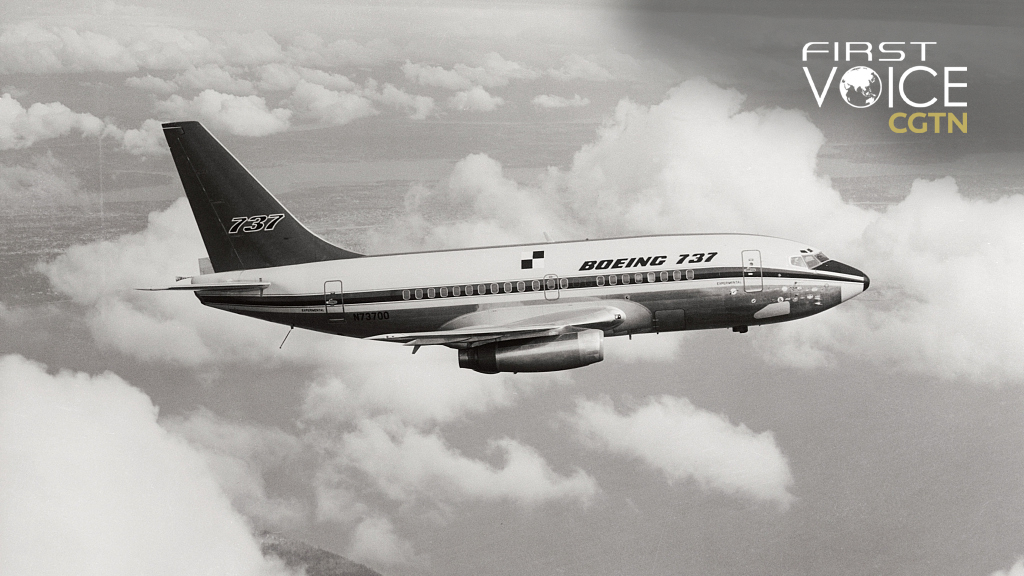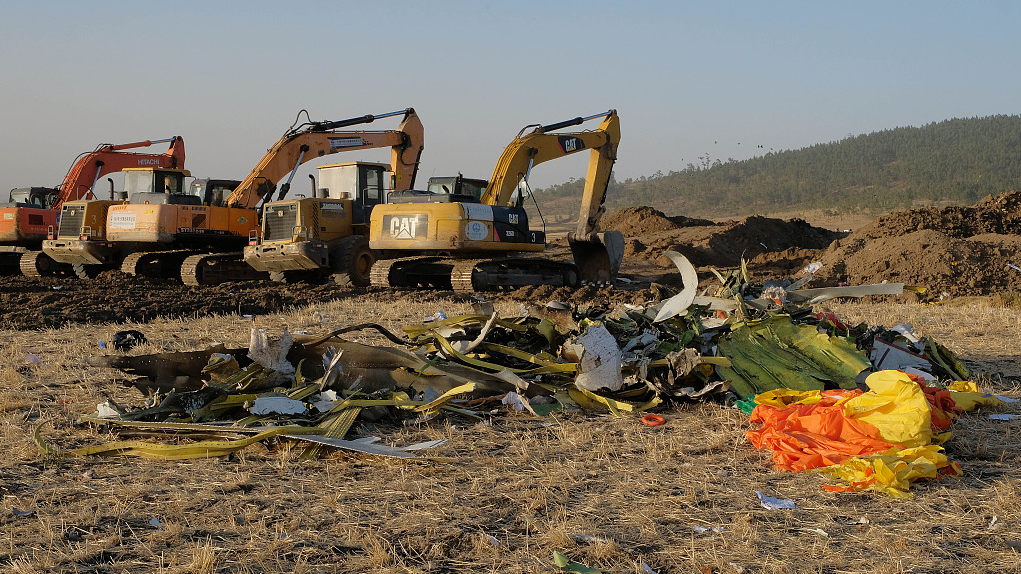
Editor's Note: CGTN's First Voice goes beyond the headlines to dissect, examine and analyze hot-off-the-press issues and breaks down breaking news into simple bits. The daily column offers a Chinese perspective on global current events to help shape your views on matters that shape your life.
"Boeing without 737s is like coke without soda" is how Bloomberg reported the company's decision to suspend the production of 737 Max single-aisle plane. Undeniably, the halt, coming after a slew of setbacks that pushed the re-certification of the embattled jet into 2020, will exert significant repercussions on the U.S. economy.
Immediately after the official announcement, Boeing saw a slump in its stock price. The aviation tycoon, according to media reports, reaps around 80 percent of its operating income from servicing commercial airplanes, and the 737 series accounts for about 70 percent of commercial deliveries. Therefore, the suspension is seen by many as tantamount to shutting down nearly half of the U.S.'s largest manufacturing exporter's business.
Moreover, as the workhorse of short- to medium-haul routes, 737 Max was one of Boeing's bestselling series. Its shutdown would also mean impacts on Boeing suppliers and airlines. Thousands of flights awaiting new planes were cancelled as a result of Boeing's Monday decision, The Guardian reported. If Boeing failed to get 737s re-certified and return stacked planes to service, the company may also be forced to lay off or furlough employees working on the Max production line, negatively impacting the country's economy.
Given the above, observers argue that keeping production going is a better option. "Imagine if Toyota Motor Corp. stopped making Corollas, or Coca-Cola Co. stopped making Diet Coke, or McDonald's Corp. stopped serving Big Macs," Bloomberg said in its article, implying the financial plight Boeing's Monday move may incur.

A debris pile sits just outside the impact crater where Ethiopian Airlines Flight ET302 crashed in Bishoftu, Ethiopia, March 11, 2019. /CGTN Photo
A debris pile sits just outside the impact crater where Ethiopian Airlines Flight ET302 crashed in Bishoftu, Ethiopia, March 11, 2019. /CGTN Photo
The temporary financial pains are certain. But without re-certification by airline regulators, Boeing has no better choice but to halt the production of 737 Max. Economically speaking, although plane production line is like a perpetual motion machine that cannot be switched off by a click of the fingers, Boeing must learn to stop the bleeding especially at the time when there is no sign of an end to the stalemate. Pouring money and resources in producing more planes that would ultimately be stacked up in parking lots means more financial losses.
Credit is of vital importance for a company's long-term growth. Public confidence in 737 Max has already plummeted after two crashes near Addis Ababa in March this year and the Java Sea in October last year killed hundreds of passengers. Even if Boeing got the approval from airline regulators to put 737 Max into service, it's within expectation that only a few passengers would choose Max from other Boeing options and Airbus. Boeing should be aware that 737 Max lost the market with the two fatal crashes.
Therefore, accepting the reality is the only option for the aviation giant. Instead of anxiously waiting for re-certification, Boeing should put more efforts in investigating the causes of the previous two tragedies and detecting the loopholes of its other series. In all circumstances, human lives carry much more weight than profits. Without security, profit-making is a pseudo-proposition for an aviation company. Not a single life should be risked for a company's profits or a country's economic well-being.
It can be predicted that suppliers, airlines and other segments in the aviation production chain may sway to Boeing's rival after the halt. This is the cost that Boeing has to pay for the two fatal crashes. Researching and producing qualified jets that will not spook flyers is a top priority for the aviation tycoon at this current stage. Boeing is in a crisis, but it is hoped that the company can get out of the quagmire and rebuild the public's confidence in it in a respectable way.
Script writer: Liu Jianxi
(If you want to contribute and have specific expertise, please contact us at opinions@cgtn.com.)